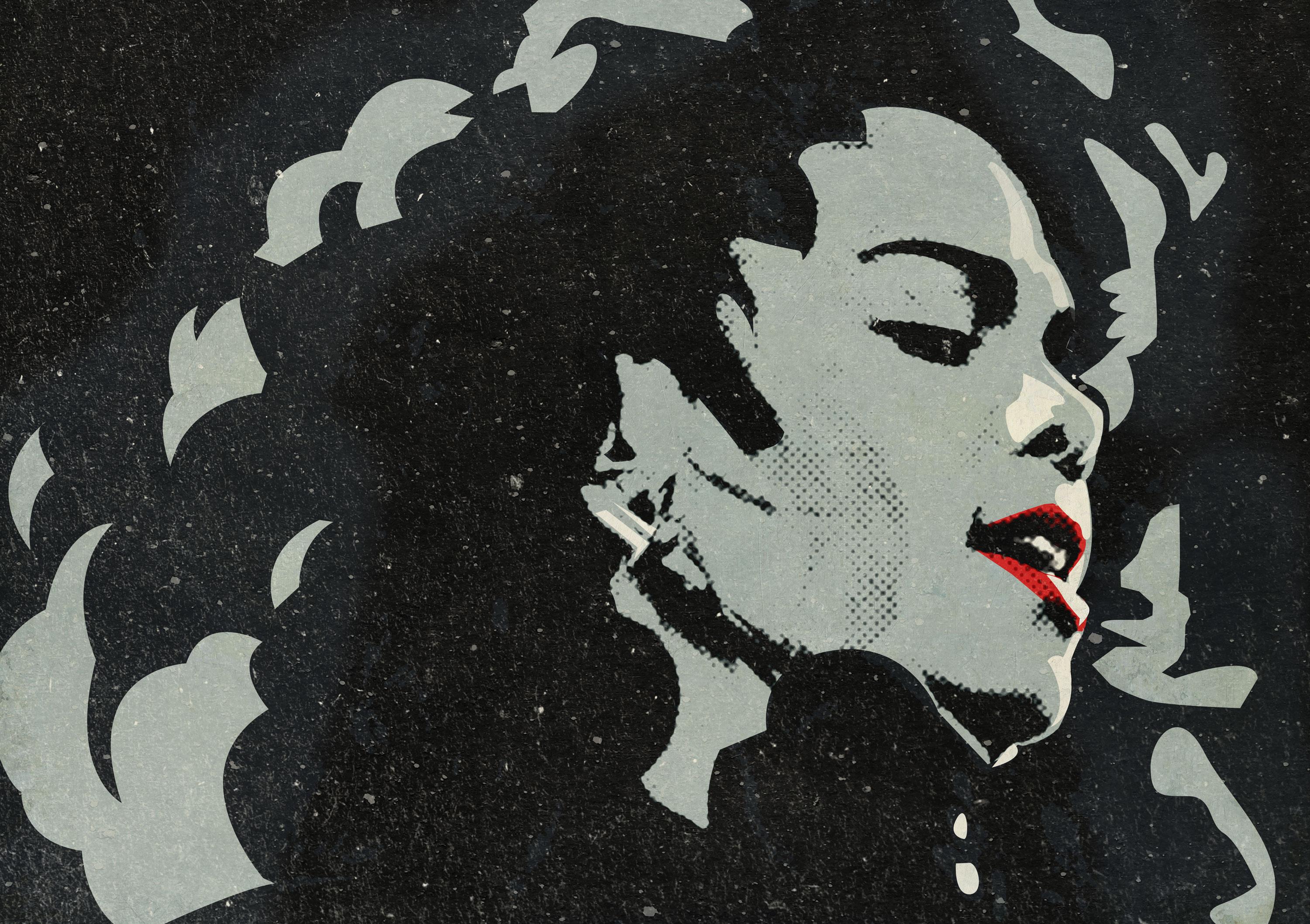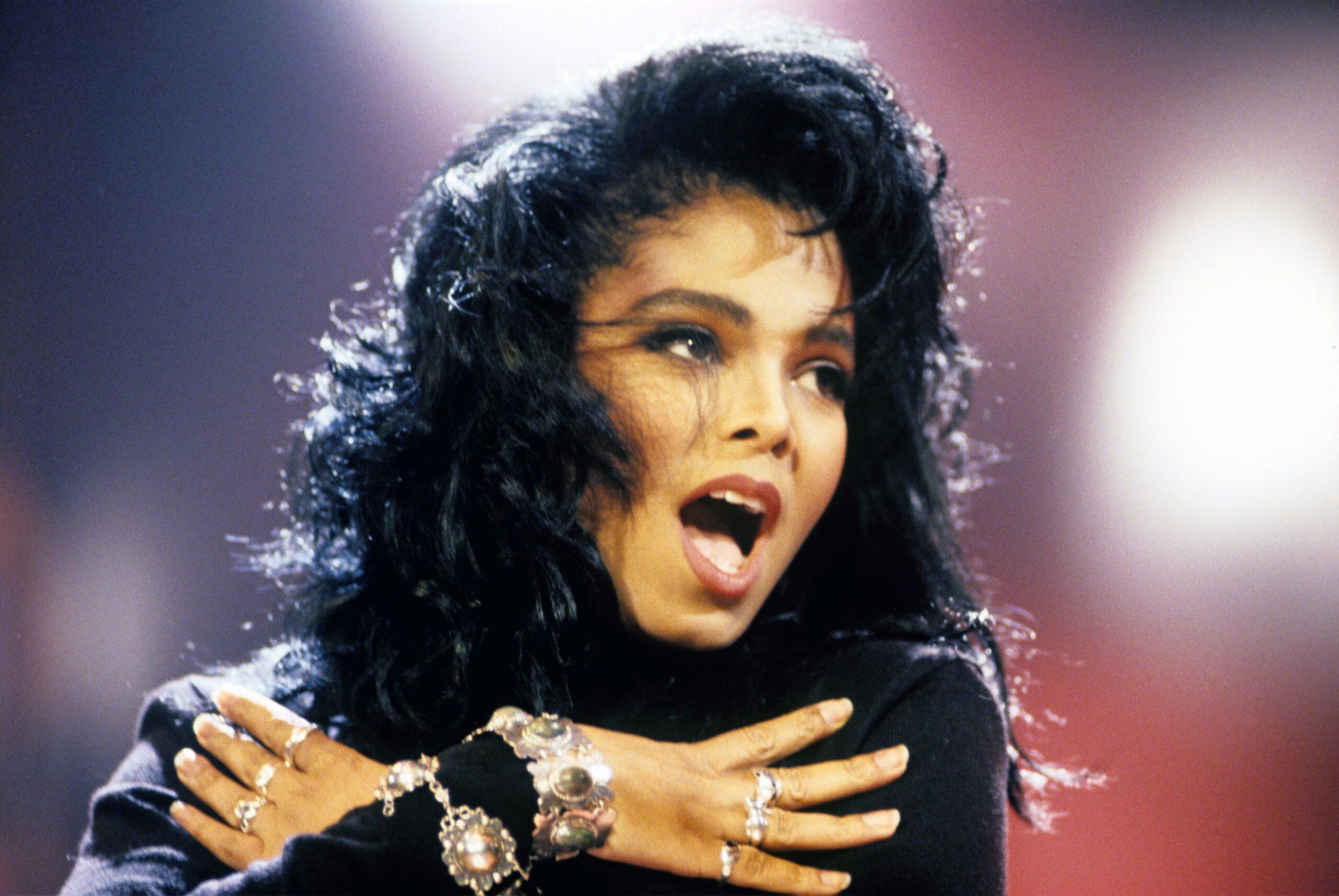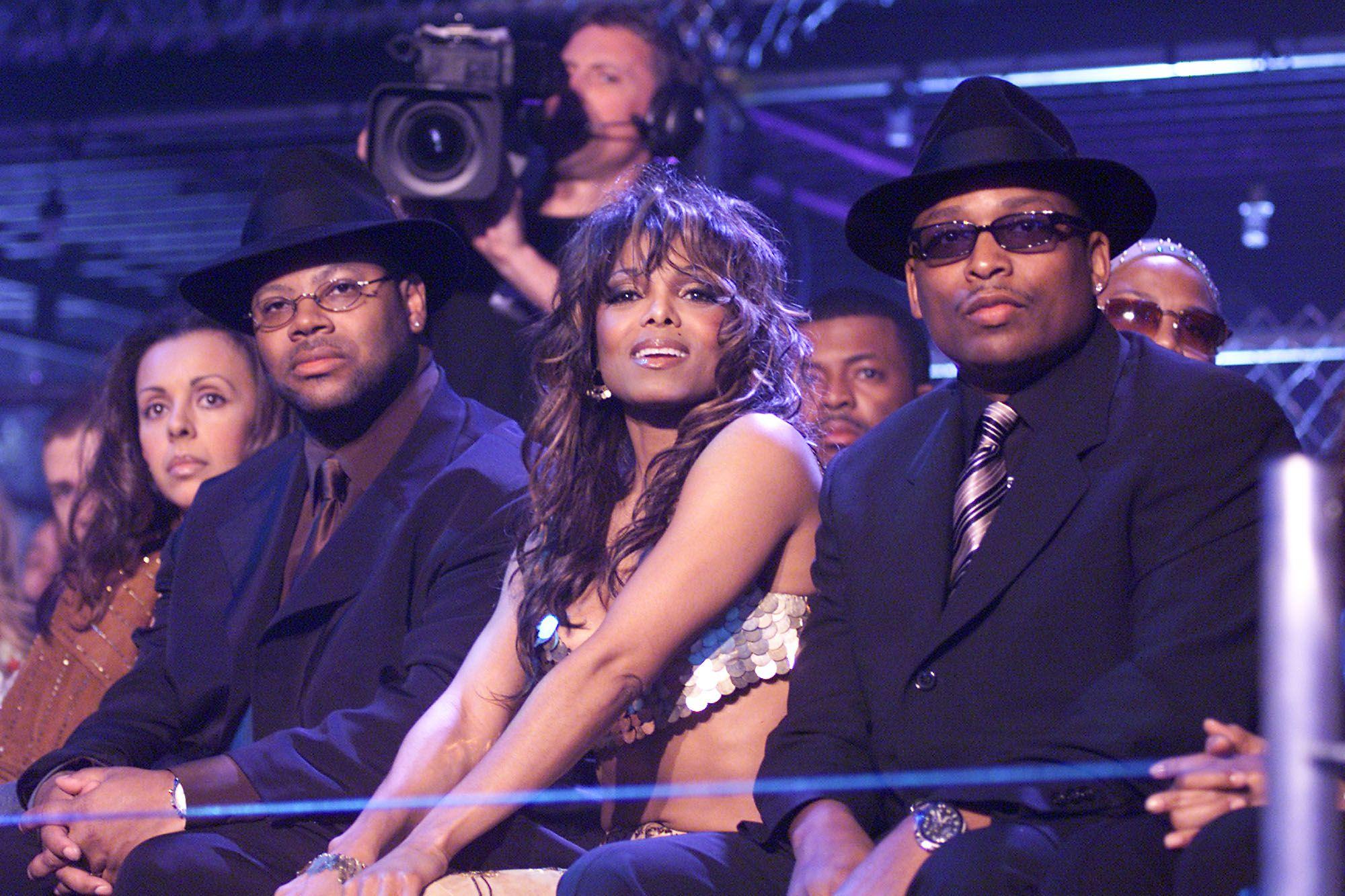
The first mass shooting of the 24-hour-cable-news era happened just before noon on January 17, 1989, when a 24-year-old man fired 105 rounds of ammunition on a crowded elementary school playground in Stockton, California. Five children, all between the ages of 6 and 9, were killed; 30 other children and adults were injured. Because of a recent migration of Cambodians to Stockton, more than two-thirds of the school’s students were Southeast Asian, and the gunman was later said to have been overheard ranting about government handouts for immigrants. The children’s school pictures haunted cable news for weeks. “As the first mass school shooting since the advent of CNN,” wrote the journalist S.T. VanAirsdale in a 2014 recollection, “it stunned and galvanized viewers in breathless televised loops.”
Two thousand miles away, 23-year-old Janet Jackson was holed up in Flyte Tyme studios with her coproducers Jimmy Jam and Terry Lewis, enduring a Minnesota winter and working on the follow-up to her multi-platinum 1986 breakthrough Control. “When you’re sitting in the studio for long hours, you tend to watch a lot of television,” Jam said in an interview several years ago. “Back then, there were probably 50 channels. You had to have MTV, BET, VH1, and CNN. These channels were constantly playing on our TV in the studio. We would flip between MTV to watch music videos and CNN to see what was happening in the world. Somehow, it almost became a blur to us.”
That fragmented energy of flipping back and forth between CNN and MTV would help create one of the most revered and influential pop albums of all time, the 1989 epic Janet Jackson’s Rhythm Nation 1814. Across a little more than an hour, these songs smash cut from the personal to political, from despair to transcendence, from heaven to hell and then back again. Missives from the real world interrupt romantic revelries. The Stockton shooting—news of which Jam says “affected the whole day” in the studio—directly inspired the piano-driven ballad “Livin’ in a World (They Didn’t Make),” one of the most specifically political songs on the record. “Payin’ for a lot of adult mistakes,” Jackson sings. “How much of this madness can they take as children?” The song itself verges on mawkish, but it takes a turn for the chilling when children’s screams and the audio from a news broadcast puncture the atmosphere: “This just in … at least five people are dead, and 30 others wounded after a gunman opened fire on a California school playground.”
Rhythm Nation became seismically successful, spawning an unprecedented seven top-five hits and altering the sound and scope of pop music forever. So how depressing is it that, on the 30th anniversary of the record’s release, nothing about it feels quite so prophetic as that jolting, news-flash interruption about a school shooting destined to fade into a flat, televised memory? “People of the world today / Are we looking for a better way of life?” Janet asked. You could ask that question at any time, of course, but we’re definitely still asking it now.
According to a 1990 Rolling Stone cover story, Janet’s father and onetime manager Joe Jackson was wary of her working with Jimmy Jam and Terry Lewis, who were former members of the funky Morris Day–helmed group the Time. “I know you guys are from Minneapolis,” he is reported to have said, when they were in talks to work with Janet on her 1986 album, Control. “I don’t want my daughter sounding like Prince.”
Jam didn’t see that as a bad thing. “Growing up in Minneapolis, watching people like Prince, we saw that all ideas are valid, and color lines are blurred,” he told Billboard in 2019. “Rock guitar goes over funky beats, and keyboards replace horn sections. It was all of those things put together that became an incubator.” Janet sided with the forward-thinking producers, and relocated temporarily to Minneapolis to work on what would become her first defining statement as an artist. (She would eventually fire her father as her manager.)
Control was technically Janet Jackson’s third album—her first if you’re nasty. Her 1982 self-titled debut and its 1984 follow-up Dream Street were collections of competent, faceless dance-pop, with arrangements that fit like hand-me-downs from her older brother’s Off the Wall era. She later admitted that those albums had come less from a genuine desire to express herself than to fulfill her father’s dreams of familial superstardom—“I told him, ‘Yeah, OK—that’s fine.’ I didn’t mind, but I wasn’t really into it”—and it showed. “We felt like the records she made on her first two albums were made by producers, and she just sang them,” Jam later recalled. “She didn’t have any input on the songs.” Their work with Prince and Morris Day had shown them that charismatic pop music needed more than just decent pipes—it needed personality. “We felt that Janet had a great singing voice,” he added, “but we knew that her attitude was what was missing from her records.”

Control has ’tude to spare; it was almost like she was making up for lost time. Her demands for respect and independence became rallying cries—“and no, my first name ain’t baby”—but these songs were also animated by her personal idiosyncrasies and her own spin on her family’s well-known tabloid narratives. “When I was 17, I did what people told me,” she sang on the combative title track. “Did what my father said, and let my mother mold me.” In the second verse, when she mentions falling in love for the first time, the line is punctuated by the sound of a car crash. Anyone paying even fleeting attention to Janet’s personal life knew this was a nod to her brief, tumultuous, quickly annulled marriage to James DeBarge, with whom she’d eloped when she was 18.
In the mid-’80s, Janet was still known as the cherubic-faced baby girl of the Jackson family—eternally Penny from Good Times. Jam and Lewis’s masterstroke as producers wasn’t just their studio innovation, but their willingness to take 19-year-old Janet Jackson seriously as a creative collaborator, a woman with something to say. Even when it’s about asserting independence and control, pop music is often the product of collaboration between multiple writers and producers. Jam and Lewis knew, though, that an authentic-seeming attitude and a personalized persona was what made a record like Control come alive. It was an enduring truth: For any pop star looking to shed her old skin and announce her adulthood, Control is still the template. You can hear its echoes everywhere—in Ariana Grande’s headline-remixing “Thank U, Next,” in Lizzo’s chatty, no-nonsense sass, in Beyoncé’s militant melodies. When it came time to follow it up, though, Janet was thinking on an even grander scale. She was assembling an army.
Between Control and Rhythm Nation, Jam and Lewis upgraded their studio. Thanks in part to the former record’s commercial success, they now had at their disposal a 48-track board, a slew of new keyboards, and a Sequential Circuits drum machine that made hi-hats sound as abrasive as trash can lids. To capture the late-Reagan-era chaos they took in every time they flipped through the cable channels, Janet and her producers were in search of an even more industrial sound, one that pulled from genres more confrontational than just pop and R&B. “Those kinds of sounds and sonics were always reserved for either hip-hop music or rock music, and usually not with a female,” Jam said, “and certainly not a female artist that most would think of as a soft-spoken female artist.”
But that constant fusion of opposites is what still makes Rhythm Nation so dynamic. Even songs as airy as “Love Will Never Do (Without You)” and “Escapade” are anchored by bleacher-shaking percussion. (When she first heard the “Escapade” track, Janet said, “That sounds like one of those beats you hear at a basketball game, and everybody gets up and starts cheering.”) “Escapade” isn’t a political song, exactly, but its sound and lyrics capture something essential about the duality of Rhythm Nation: You can’t have Friday night without a Monday morning.

Jam has said that the sequencing decision to front-load the album with “message songs” like the kinetic title track, the unsparing portrait of homelessness “State of the World,” and the catch-all rallying cry for social justice “The Knowledge” was something of a risk. It would have been easier, as he put it, to have featured “a beautiful colored picture of Janet on the cover, the album is entitled Escapade, we start the album with ‘Miss You Much’ and then to ‘Love Will Never Do (Without You)’ and then to ‘Escapade,’ and we put all the fun songs up front,” leaving the harder-hitting political songs as “an afterthought.” Fair enough. But even contemporary reviewers noted that Rhythm Nation’s concerns—homelessness, illiteracy, “injustice” writ large—were general enough to evade much controversy. “With its transparent ambitions, it’s also a primer on the making of a late-1980s blockbuster,” the New York Times pop critic Jon Pareles wrote at the time of its release. “As for attitude,” he added, “this time Ms. Jackson has chosen a popular late-1980s gambit: earnest social concern.”
Even then, Janet didn’t speak much to the press, but when she did sit down with Rolling Stone after Rhythm Nation had come out, she stressed that she wasn’t as naive as some of her critics assumed. “You know, a lot of people have said, ‘She’s not being realistic with this Rhythm Nation,’” she said. “It’s like, ‘Oh, she thinks the world is going to come together through her dance music,’ and that’s not the case at all. I know a song or an album can’t change the world. But there’s nothing wrong with doing what we’re doing to help spread the message.” Of course, other, seemingly more “serious” artists had taken this approach before—then and now, the album Rhythm Nation is most frequently compared to is Marvin Gaye’s What’s Going On—but Janet’s innovation was to bring a conscience to the supposedly frothy world of dance-pop. “I feel that most socially conscious artists—like Tracy Chapman, U2—I love their music, but I feel their audience is already socially conscious,” she told Rolling Stone. “I feel that I could reach a different audience, let them know what’s going on and that you have to be a little bit wiser than you are and watch yourself.”
Thirty years on, the idea of “socially concerned” pop music is so commonplace as to be expected. When Taylor Swift declined to endorse a presidential candidate in the 2016 election or make any overt political statements on her 2017 album Reputation, plenty of critics interpreted it as a moral failure. Several years ago, when Beyoncé appeared at the Super Bowl halftime show to perform her militant new song “Formation,” she and her dancers were channeling not just the lasting iconography of Rhythm Nation–era Janet but, even more provocatively, the Black Panthers. The idea of “fan armies,” too, has become de rigueur, even if they’re not always ordered to carry out tasks as noble as the ones Janet had in mind; fighting injustice or illiteracy is a far cry from emoji-bombing a rival’s Instagram page. Still, when you hear Rihanna addressing her “Navy” or even Lady Gaga calling upon her “Little Monsters,” it’s hard not to think of Jackson commanding her globally interconnected listeners to stand at attention: “Nation!”
But I think, too, that in the rearview Rhythm Nation also puts the limitations of political pop into perspective. She was mostly right in that clear-eyed Rolling Stone interview: A song or an album can’t solve all the world’s problems, and maybe we are naive for expecting it to change much at all. (Katy Perry, for example, is still having trouble distancing herself from the earnest ambitions of Witness, her 2017 foray into so-called “purposeful pop.”) Revisiting Rhythm Nation in 2019, it’s eerie how little of its context has changed, and how much of what Janet rails against—homelessness, drug use, racism, mass shootings—has seemed to only get worse. “Join voices in protest, to social injustice,” Jackson sang, embodying the record’s big-tent optimism. Rhythm Nation was always more of a general, sweeping primal scream than a directed call to arms. But maybe, in its own way, that is what has kept it fresh and alive to a perpetual present. Pop musical trends come and go. The simple act of giving a damn is timeless.